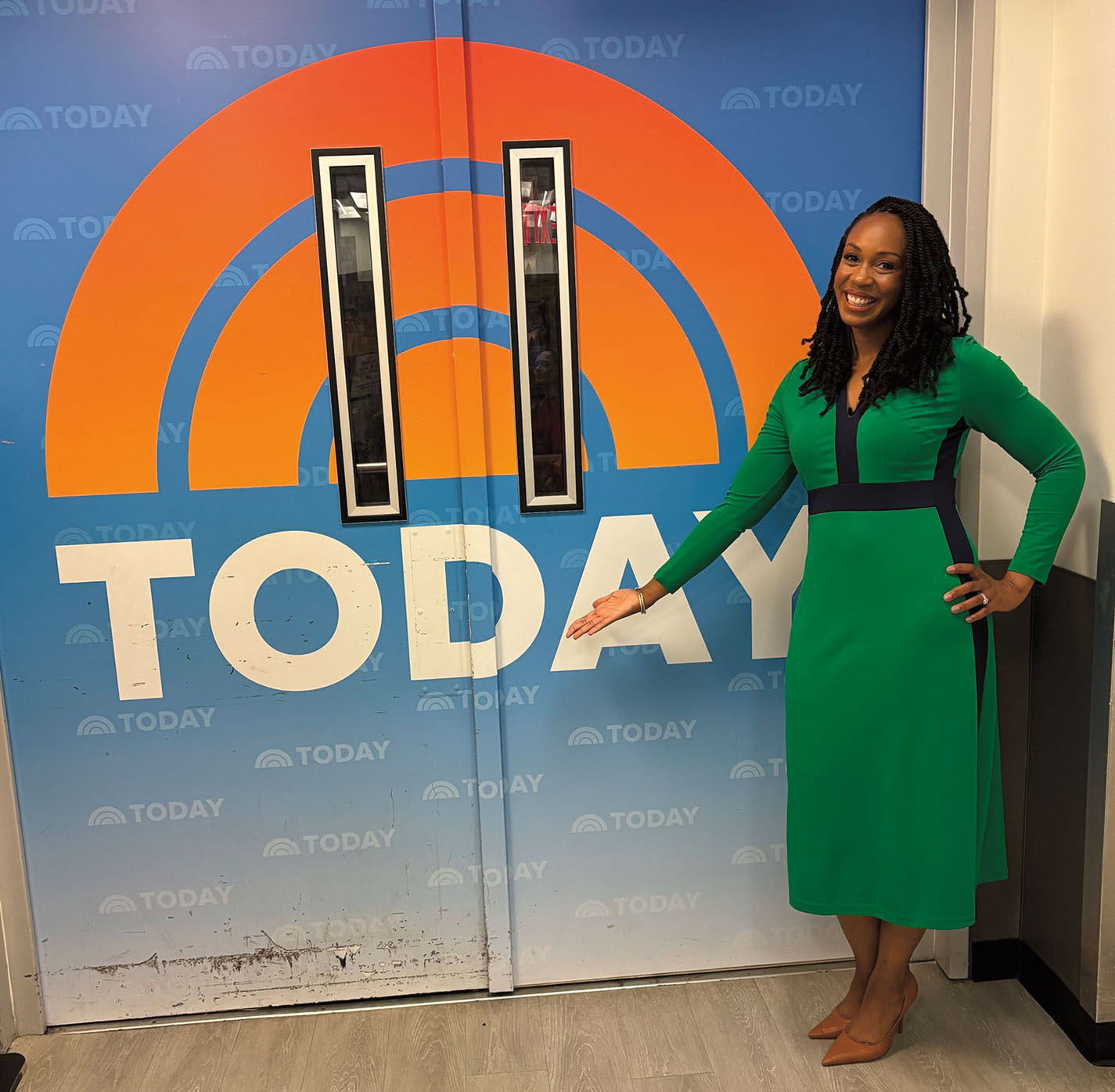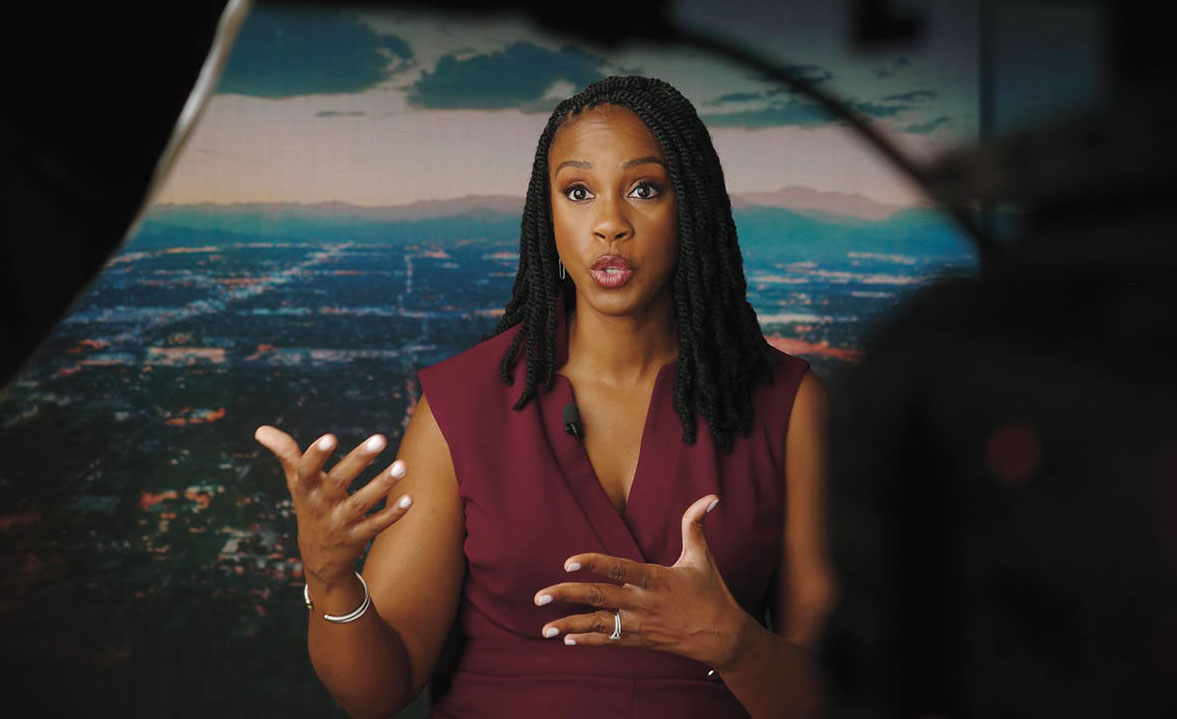Like most kids, Blayne Alexander ’08 had her favorite childhood TV shows. But Alexander’s choices were hardly what you would expect for a typical second-grader.
“NBC Nightly News” with Tom Brokaw. The “Today” show with Katie Couric and Bryant Gumbel. “Dateline” with Jane Pauley, one of the show’s original co-anchors.
“It was just a constant presence in my life,” says Alexander, 39, who joined “Dateline” as its newest correspondent last fall. “I really enjoyed watching the news.”
That insatiable curiosity about the world has propelled Alexander on a journalism journey that has taken her from Duke, where she was an English major, to the popular investigative news series on NBC.
Along the way, Alexander has covered a wide variety of beats in diverse reporting jobs – a desk assistant in Washington, D.C.; a multimedia journalist in Augusta, Georgia; a local news anchor in Atlanta; a Washington correspondent for NBC News; a “Today” show correspondent. She has covered the White House, the Olympics, the COVID-19 pandemic, racial injustices and more.

“Every place I’ve gone, I’ve thought: ‘Where’s a new place I can grow? What’s a new thing I want to try to do?’” Alexander says. “That’s always been a driving force.”
Alexander cites her parents, Robert H. Alexander Jr. and Annita Bridges, as formative influences – pushing her to think critically and to join conversations from an early age. Both of Alexander’s parents were attorneys in Oklahoma City, where she grew up. Hanging out in their office as a 9-year-old, she was often asked to proof letters full of legalese.
“They never talked to me like, ‘Oh, you’re too young to understand,’” she says. “My parents always nurtured the curiosity and pushed me to think.”
One summer while she was still in high school, Alexander tagged along with her father on a business trip to Oregon, where the pair made a pitstop at the U.S. Olympic Trials.
“She saw some target that she wanted to interview, and she just took off,” Robert says. “I saw her zip away and go into the ‘Athletes Only’ tent to interview one of the 400-meter finalists.”
The confidence and independence that followed led Alexander across the country to Duke. During her first year, she convinced the late John Dancy, then an adjunct journalism professor at the Sanford School of Public Policy, to let her into his upper-level journalism class.
That class led to a lifelong relationship, she says, with Dancy cheering her on through every step of her career. An NBC News veteran, Dancy encouraged Alexander to apply for her first journalism internship in Washington, D.C., where she got to know veteran journalists including Andrea Mitchell. The experience taught her the importance of staying curious and building relationships.
“There were times when I just went up to people and said, ‘Can I just watch you do this interview? Can I watch you edit? Can I just be around?’” she says of the advice she would give to current Duke students. “That turned into getting a wealth of knowledge. But more importantly, it turned into a really good relationship.”
Her experiences also have helped her lean into her own as a now-veteran journalist, she says.
“I think that every bit of who I am informs how I walk through life – being a Black woman, being from Oklahoma, going to a school like Duke, being a mom now,” says Alexander, who has a toddler and a nearly 1-year old with her husband, entrepreneur Jay Bailey. “I think that it doesn’t take away objectivity. It just provides more depth and perspective – who you talk to or the kinds of questions you ask.”
The humanity Alexander brings to her work hasn’t gone unnoticed, especially on “Dateline,” where the stories are often difficult topics involving victims of crime.
“One question that I almost always ask is, ‘What should we know about them? Something that when you close your eyes and think about them today, what stands out about them?’” Alexander says.
That empathy and ability to connect on a human level is “just who she is,” says Alexander’s mother Annita. “When she was just starting out, even people would call her station and say, ‘I’ve got something to say, but I want to only talk to Blayne.’ They felt that connection with her.”
That’s a responsibility Alexander says she takes seriously. “Talking to people after interviews, they have told me that it’s a cathartic experience. They’re grateful for their loved one’s story being kept alive and being shared,” she says. “That’s something that I hold onto.”
